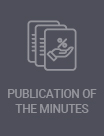Revista Ensayos sobre Política económica (ESPE) - Income inequalities in Colombia: what are their determinants and how have they been affected by the Covid-19 pandemic?
Cuando nos lea, tenga siempre presente que el contenido de nuestros artículos, así como los análisis y conclusiones que de ellos se derivan, son exclusiva responsabilidad de sus autores. El material divulgado en nuestra revista ESPE no compromete ni representa la opinión del Banco de la República ni la de su Junta Directiva.
En la revista Ensayos sobre Política Económica – ESPE – divulgamos los resultados y las propuestas de política que surgen de investigaciones académicas realizadas en el Banco de la República. Cuando nos lea, tenga siempre presente que el contenido de nuestros artículos, así como los análisis y conclusiones que de ellos se derivan, son exclusiva responsabilidad de sus autores. El material divulgado en nuestra revista ESPE no compromete ni representa la opinión del Banco de la República ni la de su Junta Directiva.
Abstract
This document studies the determinants of changes in labor and non-labor income inequality from a microeconomic perspective to help in the design and formulation of public policies that improve the situation of income inequalities in Colombia. The study is carried out for the national total and the twenty-three major cities and their metropolitan areas. In addition, considering that the COVID-19 pandemic has left unexpected consequences on the economy, the document includes an analysis of the changes in the distribution of income in 2020. In particular, we incorporate shocks to aggregate variables of the labor market, at the level of cities, allowing to understand the channels through which the COVID-19 crisis has affected the income distribution. We used a micro-decomposition methodology following Bourguignon and Ferreira (2005) that allows us to make comparisons of changes in income distribution over time. The results show that, in terms of reductions in inequality, the labor components play a significant role. This reduction is largely due to changes in returns to education and in the stock of human capital. In the non-labor income component, there is an important participation of transfers and leases, which in most cases act as equalizing elements. Finally, with respect to the COVID-19 pandemic, there is a significant setback in inequalities that is mainly explained by the deterioration of labor market variables.





















































